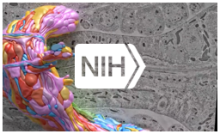
Data science – the extraction of knowledge from large volumes of unstructured data – has the potential to revolutionize our understanding of health and disease. Yet biomedical science faces a shortage of skilled researchers who have facility with computational ideas and paradigms.
Three scientists from the National Institutes of Health (NIH) have recently published an article in CHANCE, a non-technical magazine co-published by the American Statistical Association and Taylor & Francis Group about statistics and its use in society, urging statisticians to consider working on biomedical ‘Big Data’ problems.
The authors argue that data science – the extraction of knowledge from large volumes of unstructured data – has the potential to revolutionize our understanding of health and disease, but they underscore the current shortage of skilled researchers who have facility with computational ideas and paradigms. The authors point to two particular initiatives supported by the NIH – Big Data to Knowledge (BD2K) and Brain Research through Advancing Innovative Neurotechnologies (BRAIN) – and describe the opportunities available for statisticians to accelerate progress in these initiatives. The BRAIN InitiativeSM goal of revolutionizing our understanding of the human brain is one example of many advances that will undoubtedly be facilitated by a modern research ecosystem, in which scientists, including statisticians, work collaboratively to find meaning in biomedical research data to enhance health, lengthen life, and reduce illness and disability.
